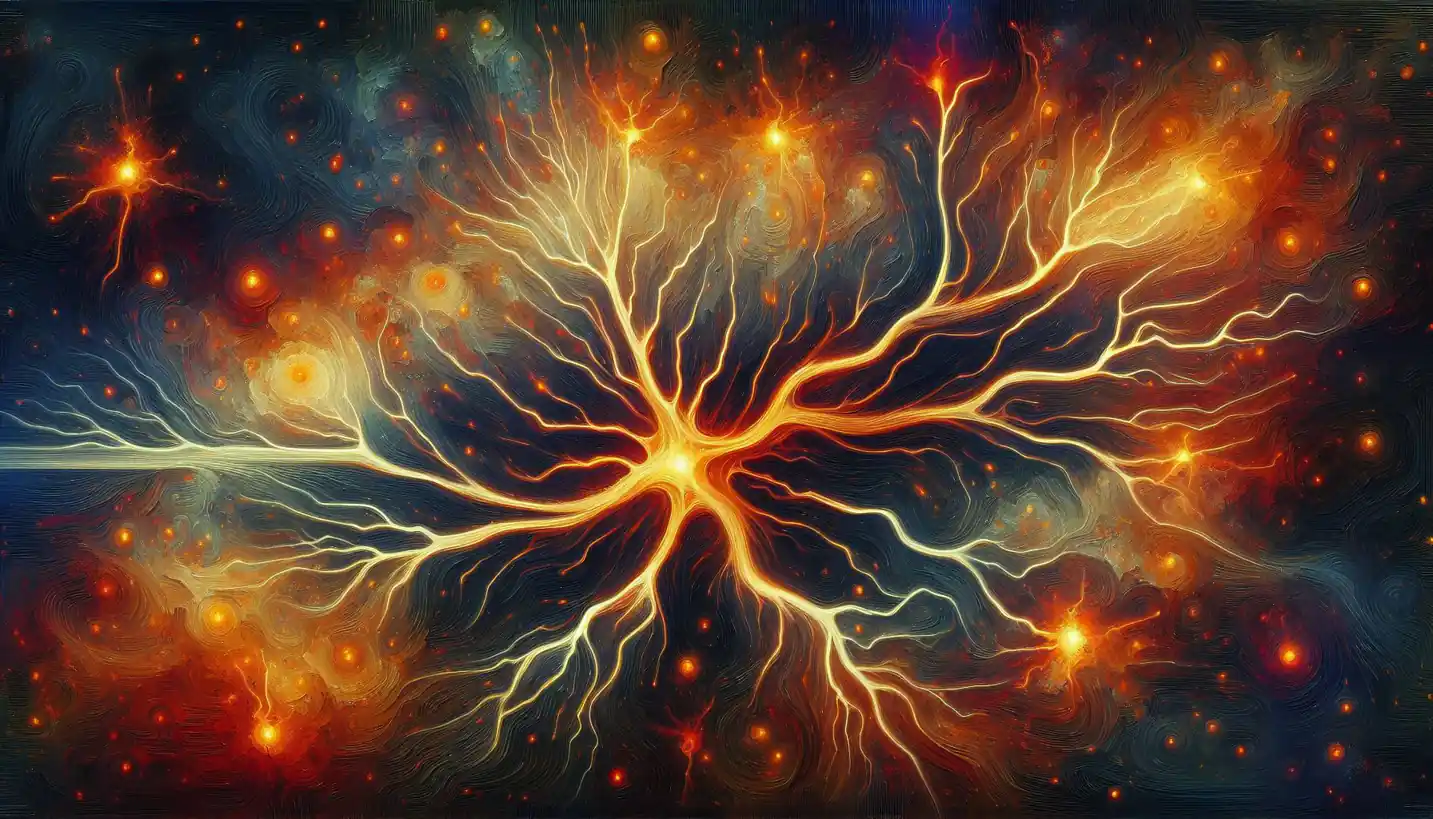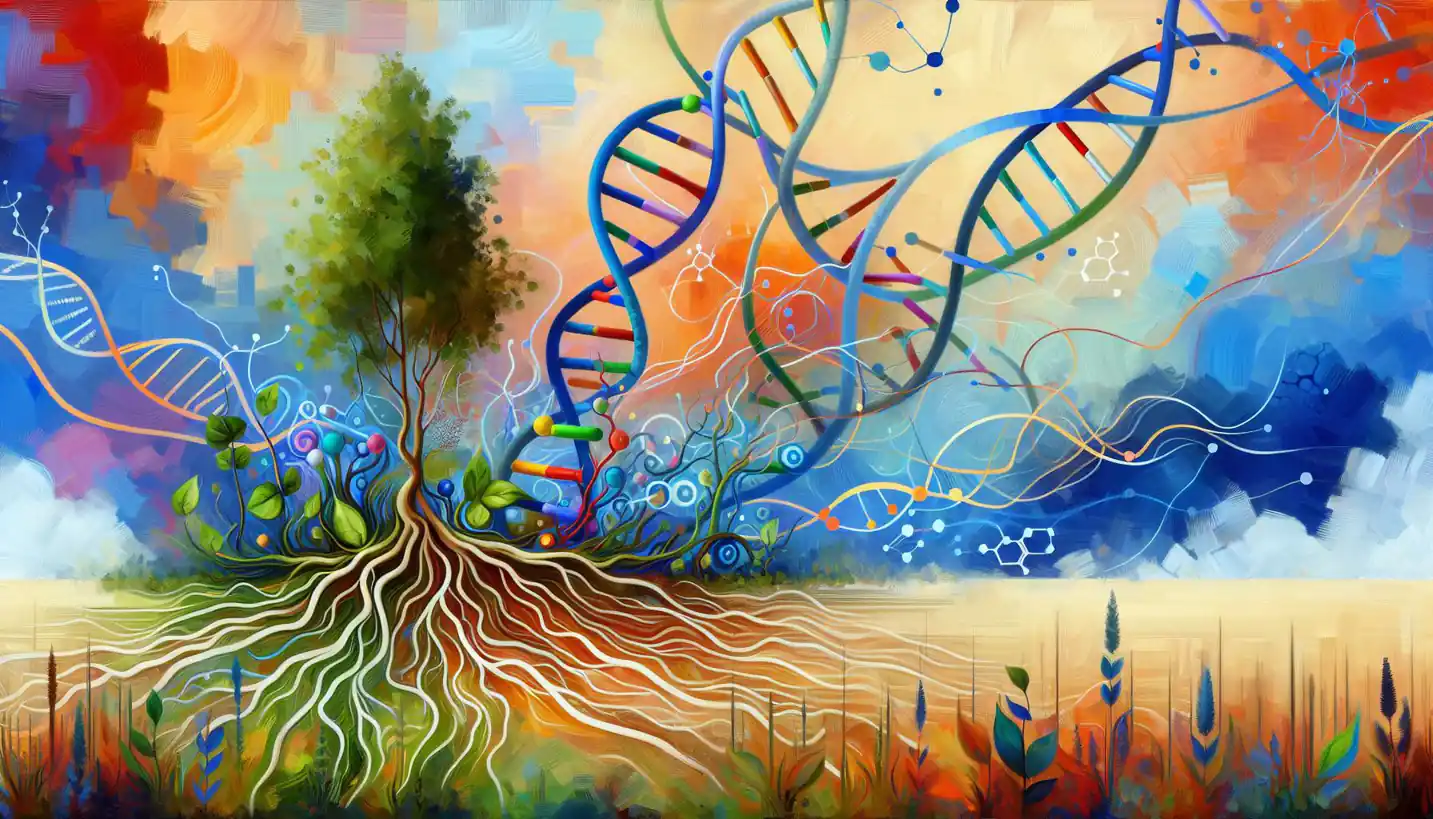· Biology · 4 min read
Apoptosis: The Art of Cellular Self-Destruction
Apoptosis allows cells to self-destruct when necessary, maintaining health. Explore how this programmed death process keeps tissues safe and functioning.

Wander into the world of cell biology with me, and discover a fascinating process called apoptosis. It might sound like the name of a sci-fi villain, but it’s actually a helpful hero in the microscopic world of our cells. Apoptosis is all about controlled self-destruction, ensuring our bodies function smoothly by getting rid of cells that are no longer needed or are potentially harmful.
What is Apoptosis?
Apoptosis is often described as programmed cell death. Imagine you have a smartphone that starts glitching. Instead of letting it malfunction and possibly cause more issues, you smartly decide to reset it to factory settings. Apoptosis is a bit like that reset button for cells. It’s essential for maintaining balance and health within multicellular organisms like us.
During development, apoptosis shapes our bodies. Think about the space between your fingers – that’s thanks to apoptosis clearing away unnecessary cells in the embryo so your fingers could form properly.
The Science Behind Apoptosis
When a cell receives signals for apoptosis, it follows a well-orchestrated series of steps. Specialized proteins, known as caspases, are activated. These are like tiny molecular scissors, slicing up the cell’s components safely and efficiently. The cell then shrinks and sends out signals for clean-up, like a contractor tidying up a demolition site. Neighboring cells or immune cells come along to clear away the debris, preventing any inflammation or damage to surrounding areas.
Why Do Cells Commit Apoptosis?
It might seem strange for a cell to willingly destroy itself, but apoptosis is crucial for several reasons:
Development: As mentioned, forming body structures during growth relies on apoptosis. Your fingers and toes would look quite different without it.
Homeostasis: Apoptosis ensures that we have just the right number of cells. New cells are born through division, and old or damaged ones bow out gracefully via apoptosis.
Defense: When a cell is damaged beyond repair, or potentially poses a threat, such as a virus-infected or cancerous cell, apoptosis acts as a defense mechanism to eliminate the risk.
Real-Life Implications of Apoptosis
In the big picture, apoptosis keeps us healthy. But what happens when this process goes awry?
Apoptosis Gone Wrong
If cells don’t undergo apoptosis when they should, it can lead to diseases like cancer. Imagine if rogue cells disregarded the self-destruction signal; they could multiply uncontrollably, leading to tumors. On the flip side, excessive apoptosis could result in neurodegenerative conditions like Alzheimer’s, where too many brain cells die off.
Research on Apoptosis
Researchers are keenly interested in understanding and manipulating apoptosis, not just to comprehend our biology better but to develop new treatments. For example, in cancer therapy, scientists are looking at ways to encourage apoptosis in cancerous cells, tricking them into hitting that self-destruct button and stopping the disease in its tracks.
Future of Apoptosis Research
What lies ahead in the exciting realm of apoptosis? Scientists are exploring how to harness or regulate this process with precision. There are potential treatments for autoimmune diseases, where cells are mistakenly destroyed, or strategies to protect neurons in conditions like Parkinson’s.
One intriguing area of research focuses on using diet and lifestyle to influence apoptotic pathways. Could what we eat affect how well our cells decide when to self-destruct? This is a question researchers are eager to explore.
Conclusion: Why Apoptosis Matters
Ultimately, apoptosis is a fundamental part of life, death, and everything in between. It might seem paradoxical that the destruction of cells is vital for our health, but without apoptosis, we’d be a mass of cells, unable to grow, develop, or fight disease effectively.
So, as we delve deeper into this captivating process, one thing is clear: apoptosis is not just about death but about life – ensuring that living organisms, whether they’re humans or tiny microorganisms, thrive in balance and harmony. Understanding it better not only enlightens our grasp of biology but also holds the promise of new medical breakthroughs that could change lives.
Keep your curiosity sparked – what other secrets does cell biology hold? And how might they transform our understanding of life itself? The quest for knowledge never ends.



